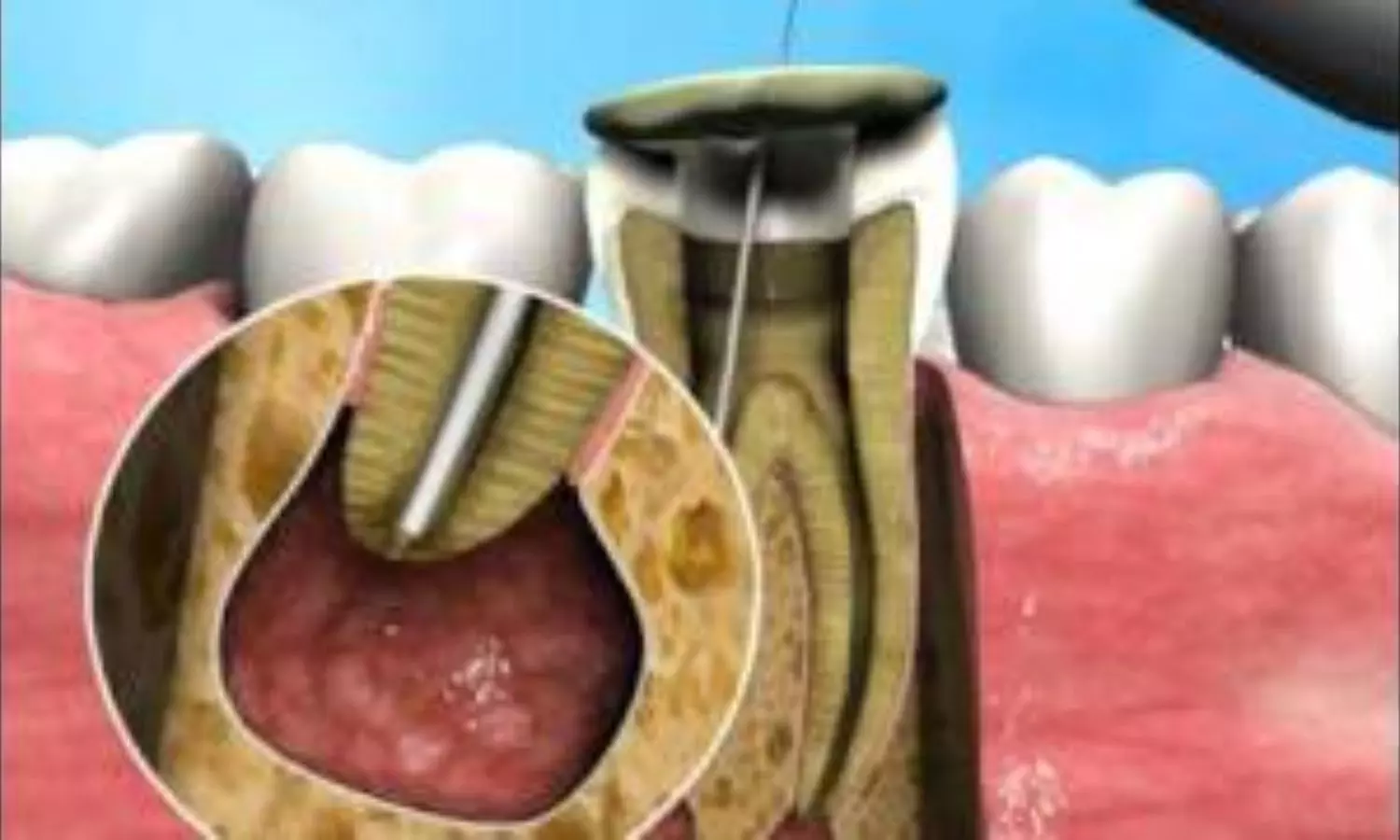Study Links Elevated Serum Hepatic Transaminases to Apical Periodontitis

Chile: A recent study has brought to light a concerning association between elevated serum hepatic transaminases and apical periodontitis, a common dental condition affecting the root tip of a tooth. The study aimed to explore potential connections between oral health and liver function markers.
Apical periodontitis (AP) is associated with higher serum hepatic transaminases alanine aminotransferase (ALT) and aspartate aminotransferase (AST), potentially contributing to nonalcoholic fatty liver disease (NAFLD) physiopathology in young adults, the study stated. The findings were published in the International Endodontic Journal.
Apical periodontitis occurs when bacteria infect the dental pulp and spread to the root tip, leading to inflammation and possible infection in the surrounding tissues. The condition is prevalent among adults and can cause significant discomfort if left untreated. Whilst AP has been linked with noncommunicable diseases and systemic inflammation, its potential association with NAFLD is unknown. Considering this, Marcela Hernández, Universidad de Chile, Santiago, Chile, and colleagues aimed to evaluate the serum ALT and AST levels as surrogate markers of hepatic injury, and the systemic inflammatory burden in otherwise healthy individuals with and without AP diagnosis.
For this purpose, the researchers recruited individuals with AP (n = 30) and healthy controls (n = 29) in a cross-sectional study. The mean diameter (mm), number, and periapical index of the apical lesions of endodontic origin (ALEO) were assessed. AST and ALT levels (pg/mL) were measured through enzyme-linked immunosorbent assays.
The serum TNF-α, IL-9, IL-4, IL-10, IL-22, and IL-17A levels were evaluated by Multiplex assay. Inferential analysis was performed using t-test or Mann–Whitney tests as per the data distribution and linear regression models.
The following
were the key findings of the study:
- ALT and AST levels were significantly higher in
individuals with AP compared to controls. - Serum inflammatory biomarkers showed no
significant differences between the study groups. - Bivariate and multivariate analyses confirmed
that AP diagnosis was independently associated with ALT and AST elevations. - The number of ALEO positively influenced AST
levels. - IL-22 on the other hand, was associated with
reduced ALT levels.
In conclusion, young patients with apical periodontitis exhibited significantly higher serum levels of aspartate aminotransferase and alanine aminotransferase compared to controls, suggesting possible liver injury. Moreover, more severe apical lesions of endodontic origin were associated with higher AST levels.
“Despite comparable serum inflammatory markers between AP patients & controls, AP diagnosis was independently linked to increased AST & ALT levels,” the researchers wrote. The study represents a significant step toward elucidating the complex interactions between oral health and systemic conditions like liver function.
Reference:
Bordagaray, M. J., Pellegrini, E., Garrido, M., Hernández-Ríos, P., Villalobos, T., Fernández, A., & Hernández, M. Elevated serum hepatic transaminases in apical periodontitis individuals. International Endodontic Journal. https://doi.org/10.1111/iej.14109



